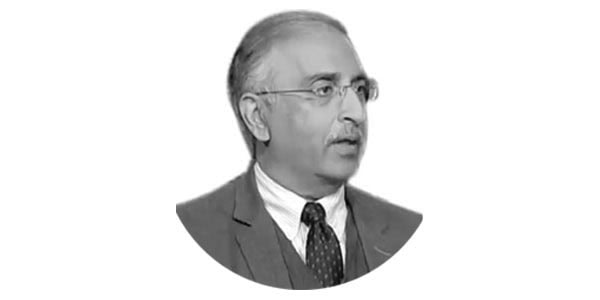Depleting SBP reserves a ticking bomb
Imran Khan wants to take over Islamabad with 2 million of his supporters. Ch Fawad Hussain is talking about ‘civil unrest’.
Sheikh Rasheed Ahmad is talking about a ‘civil war’. Clearly, politicians are playing their dirty games in the midst of a serious economic crisis.
This is bound to result in disastrous consequences. The talk of ‘civil unrest’ must now be buried or the economy will have to be buried.
Liquid foreign exchange reserves with the State Bank of Pakistan (SBP), as of April 16, stood at $10.885 billion-just enough for 7 weeks of imports.
In August 2021, SBP had $20 billion in liquid foreign exchange reserves. Over the past 8 months, SBP has lost some $10 billion of liquid reserves. Lo and behold, SBP has been losing an average of $1.2 billion a month, every month for the past 8 months.
Red alert: In the month of March SBP lost a wholesome $5 billion in just one month. A closer scrutiny at SBP reserves reveals that the reserves actually include a $3 billion Saudi loan, $2 billion UAE loan, $3 billion Chinese loan, $3 billion Chinese trade facility, $4.8 billion SWAPs and $6.7 billion from the IMF.
The net-net reserves with the SBP thus stand at a negative $11.7 billion. Depleting reserves mean that SBP is fast running out of dollars to buy $15 billion worth of petroleum products, $3 billion worth of LNG and $10 billion worth of palm oil, tea, pulses, sugar and wheat.
Last year, Sri Lanka Maha Bankuwa, the Central Bank of Sri Lanka, experienced a fast depletion in reserves. By early-2022, power stations in Sri Lanka began running out of fuel.
On 1 March 2022, the Public Utilities Commission of Sri Lanka announced “nationwide seven-and-a-half hour daily power cuts, the longest in more than a quarter of a century, as its foreign exchange crisis leaves it unable to import oil.”
On March 10, Sri Lanka’s Commissioner-General of Motor Traffic told the media that plastic used for drivers’ licenses is imported from Austria and because of the ongoing forex shortages they have not been able to import plastic to issue drivers’ licenses.
On March 20, Sri Lanka canceled “school exams over paper shortage as financial crisis bites.” In April, BBC reported, “Doctors across Sri Lanka say hospitals are running out of medicines and essential supplies as the country’s economic crisis worsens. They fear a health catastrophe if international help doesn’t arrive soon.”
Pakistan needs to replenish SBP’s foreign exchange reserves-and do that as fast as possible.
PM Shehbaz Sharif has taken a very timely decision of rushing Dr Miftah Ismail, Minister of Finance, to the IMF. The good news is that Dr Miftah Ismail has successfully taken us back into the IMF’s Extended Fund Facility (EFF) which was originally negotiated in 2019.
To be certain, getting back into the IMF’s fold will not be enough-necessary but not enough. We need to raise roughly $10 billion in the following 12 weeks to meet our debt servicing and fill the current account gap.
We are going to need Saudi Arabia as well-and the prime minister has already reached Saudi Arabia. We are also going to need China-plus all other friends.
‘IMF Statement on Pakistan’ released on April 24 states: “We agreed that prompt action is needed to reverse the unfunded subsidies.”
What that means is that the Rs10 a liter subsidy on petrol and diesel announced by ex-pm on February 28 is ‘unfunded’ and thus cannot be sustained.
What that also means is that the price of petrol and diesel is soon going to hit the Rs200-a-liter mark. That means a new price spiral-for which we should all be prepared. Yes, prices are bound to go up.
If economic history is any guide then a PML-N led government will deliver relatively better economic growth. And better economic growth means a higher per capita income. And a higher per capita income will enable us to bear the higher rate of inflation.










